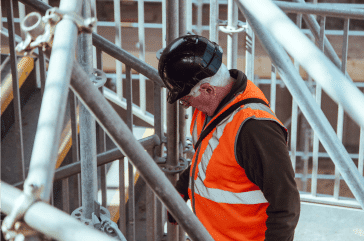Construction projects have inherent risks and uncertainties, making it challenging for contractors to secure the necessary financing and resources to complete the project successfully. That’s where surety bonds come in.
So what are construction surety bonds?
Construction surety bonds provide financial security and assurance to project owners that contractors will complete the project as per the agreed-upon terms and conditions.
Project owners often require surety bonds as part of the tendering process. In this article, we will discuss the best practices contractors should follow to ensure tendering success while bidding for construction projects requiring surety bonds.
Surety Bond Best Practice 1: Understand the Bond Requirements
Before submitting a bid, it is essential to understand the bond requirements outlined in the tender documents. The bond amount, type of bond, and duration are crucial details that contractors must be aware of to ensure they can comply with the requirements. It is also essential to understand the terms and conditions of the bond, including the obligations of the contractor and the surety company.
Surety Bond Best Practice 2: Partner with a Reputable Surety Company
When bidding on projects that require surety bonds, it is important to partner with a reputable surety company. A surety company with a good reputation in the construction industry can provide the contractor with the necessary support and guidance to ensure tendering success.
Surety Bond Best Practice 3: Provide Accurate and Complete Bid Documentation
Submitting a competitive bid requires accurate and complete documentation. This includes providing a detailed breakdown of all costs associated with the project, including labor, materials, and equipment.
Contractors should ensure that their bids are comprehensive, transparent, and well-documented. This will help demonstrate their credibility and expertise in the construction industry.
Surety Bond Best Practice 4: Demonstrate Financial Stability
Surety companies typically require contractors to demonstrate financial stability to secure a bond. Contractors should be prepared to provide the surety company with financial statements, cash flow projections, and other financial information. Demonstrating financial stability is critical to securing the necessary bond and ensuring tendering success.
Surety Bond Best Practice 5: Highlight Relevant Experience
Project owners want to work with contractors with relevant experience in the type of tendered project. Contractors should highlight their previous experience in similar projects, successes, and lessons learned. This information can help demonstrate the contractor’s expertise and improve their chances of winning the bid.
Surety Bond Best Practice 6: Develop a Strong Relationship with the Surety Company
Developing a strong relationship with the surety company can provide contractors with valuable support and guidance throughout the tendering process. Contractors should work closely with their surety company to ensure that all documentation is complete and accurate and to address any questions or concerns arising during the bidding process.
Surety Bond Best Practice 7: Meet Deadlines
Meeting deadlines is critical to tendering success. Contractors should ensure sufficient time to prepare and submit their bids and meet all deadlines outlined in the tender documents. Late submissions can disqualify contractors from the bidding process.
Surety Bond Best Practice 8: Be Prepared to Provide Collateral
Surety companies typically require collateral to secure a bond. Collateral can be in the form of cash, securities, or other assets that can be liquidated to pay for any losses incurred by the surety company. Contractors should be prepared to provide collateral to secure the necessary bond.
Surety Bond Best Practice 9: Be Prepared for Due Diligence
Surety companies typically conduct due diligence on contractors before issuing a bond. This can include reviewing the contractor’s financial statements, credit history, and previous project experience. Contractors should be prepared to provide all necessary documentation and information to support their bids.
Surety Bond Best Practice 10: Maintain a Strong Reputation
Maintaining a solid reputation within the construction industry is critical to tendering success. Contractors should strive to deliver high-quality projects on time and within budget and to maintain open and transparent communication with project owners and other stakeholders. A strong reputation can help contractors secure future projects and partnerships within the industry.
Final Thoughts
Construction surety bonds are an essential part of the tendering process for many construction projects. By following these best practices, contractors can improve their chances of tendering success and secure the necessary financing and resources to complete the project successfully.
If you’re looking for the best surety bond company to partner with, work with us at Approved Casualty & Surety. Our surety experts have years of experience with contractors and subcontractors, so you can rest assured that we can help you complete a project according to the contract. Talk to one of our experts to get started today!







